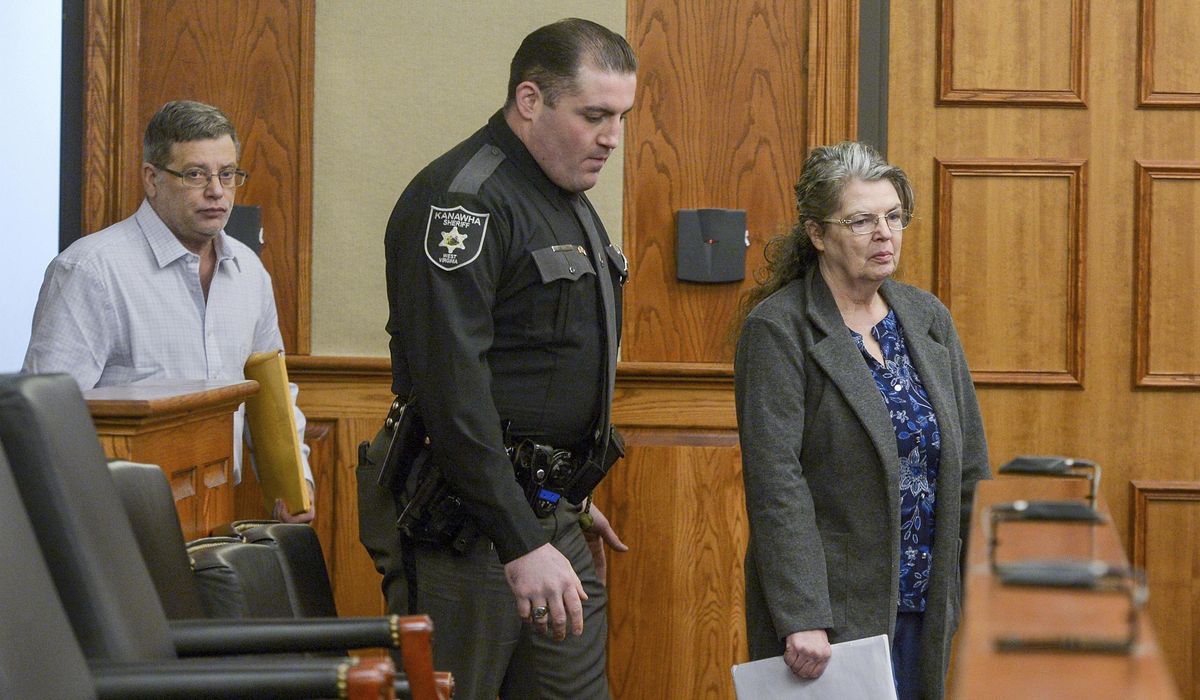Can wealth and privilege truly blind one to the basic tenets of human decency? The case of Donald Ray Lantz and Jeanne Kay Whitefeather, a couple from West Virginia, suggests a chilling answer: yes. Their actions, culminating in convictions for human trafficking, forced labor, and child abuse, shocked a community and brought to light a horrifying exploitation of vulnerable children.
The story unfolds with a backdrop of Minnesota, where Whitefeather and Lantz initially resided before relocating with the children to Washington State in 2018 and then to West Virginia in 2023, as reported by the Associated Press. This relocation, however, was merely a prelude to the darkness that would soon be revealed. In October 2023, the authorities made a grim discovery: several children, adopted by the couple, were found locked in a dilapidated shed, their clothing tattered and unsuitable. This discovery triggered a wave of investigations and legal proceedings, uncovering a disturbing pattern of abuse and exploitation.
| Category | Donald Ray Lantz | Jeanne Kay Whitefeather |
|---|---|---|
| Age (at the time of sentencing) | 63 | 62 |
| Location of Residence | Sissonville, West Virginia | Sissonville, West Virginia |
| Convictions | Human trafficking of a minor child, use of a minor in forced labor, child abuse and neglect, civil rights violations | Human trafficking of a minor child, use of a minor in forced labor, child abuse and neglect, civil rights violations |
| Sentencing | 160 years in prison | 215 years in prison |
| Restitution | $280,000 | $280,000 |
| Judge | Maryclaire Akers | Maryclaire Akers |
| Trial Date | January 2025 | January 2025 |
| Legal Representation | Information not publicly available | Information not publicly available |
| Victims | Multiple adopted children | Multiple adopted children |
Reference: AP News
On Tuesday, Donald Ray Lantz, 63, and Jeanne Kay Whitefeather, 62, appeared in Kanawha County court, entering pleas of not guilty to over a dozen new charges. These charges included, but were not limited to, human trafficking of a minor, highlighting the severity of the alleged crimes. As the legal proceedings progressed, the weight of the accusations bore down on the couple. The image of Lantz and Whitefeather during a break in the Kanawha County Circuit Court, captured on the first day of their trial in Charleston, West Virginia, on a Tuesday in January, offered a glimpse into their demeanor and the gravity of their situation. The couple had multiple charges against them after two of their adopted children were found locked in an outbuilding in October 2023.
The couple's actions, specifically targeting children adopted from a shelter for homeless and vulnerable youths aged between 6 and 16, brought their crimes into sharp focus. These children were deliberately targeted, allegedly to be subjected to forced labor, a blatant disregard for their fundamental human rights. This act of exploitation, the jury determined, was a deliberate choice made by Lantz and Whitefeather.
Judge Maryclaire Akers oversaw the proceedings, sentencing Lantz to a maximum of 160 years behind bars, while Whitefeather received a maximum sentence of 215 years. Additionally, the couple was ordered to pay restitution of $280,000 each. The announcement, made at a press conference by Kanawha County Prosecuting Attorney Debra Rusnak, confirmed the severity of the penalties. The community of Sissonville, West Virginia, where the couple resided, was left to grapple with the reality of what had transpired within their midst.
- Discovering The Allure Of Girlylana Erome A Rising Star
- Unveiling The Life Of Mehdi Hasan A Glimpse Into His Personal Life Through His Wifes Pictures
The Kanawha County jury, on January 29, found the pair guilty on multiple counts, including forced labor, human trafficking, and child abuse and neglect. This verdict was a resounding condemnation of their actions. The trial, which continued before Kanawha County Circuit Judge Maryclaire Akers, saw the presentation of testimonies, including those of five neighbors, which further illuminated the circumstances surrounding the case. The couple faced a multitude of charges stemming from their treatment of the children they had adopted. The court documented the painful truth, and the guilty verdict reflected the gravity of the offense.
Jeanne Kay Whitefeather, 63, and Donald Ray Lantz, 62, were ultimately found guilty of the heinous charges. Whitefeather received a sentence of 215 years, while Lantz received 160 years. The sentencing not only ensured their confinement but also served as a harsh reminder of the suffering they inflicted. Whitefeather was sentenced to 215 years in prison and at least 40 years behind bars before she is eligible for parole. This reflected the profound impact of their actions on the victims. In the words of Tuck, "I ask you to remember that Jeanne Whitefeather and Donald Lantz have provided these children with a life sentence."
The case highlighted how a couple, described as wealthy and living in Sissonville, West Virginia, were found guilty by a jury in January of human trafficking of a minor child and use of a minor in forced labor. They exploited their adopted children, many of whom were black, by locking them in a shed. The couple, who are white, faced accusations of not only physical but also emotional mistreatment. The case also raised difficult questions about the failure of systems designed to protect children, the dangers of unchecked power, and the insidious nature of prejudice.
The couple's actions extended beyond simple neglect. They were accused of mistreating their children, who ranged in age from six to sixteen, including instances of forced labor and confinement. Their crimes represent a cruel disregard for human dignity and a betrayal of the trust placed in them as parents. They were, as the evidence indicated, guilty on multiple counts of forced labor, human trafficking, and child abuse and neglect, underscoring the severity of their crimes. The trial provided a harsh and unflinching look at the depths of human cruelty.
The sentences handed down by Judge Akers were a reflection of the severity of the crimes. Whitefeather's 215-year sentence and Lantz's 160-year sentence stand as a testament to the pain inflicted upon the children. The sentences underscore the belief that the couple had denied their victims a fundamental human right: a safe and nurturing childhood. The court's actions have sent a clear message that such conduct will not be tolerated.
The case of Donald Ray Lantz and Jeanne Kay Whitefeather serves as a stark reminder of the importance of vigilance. It underlines the vital need for robust child protection systems and the necessity of ensuring that vulnerable children are safe and nurtured. It also reminds us to be aware of the signs of exploitation and to be proactive in protecting those who cannot protect themselves. The pain they inflicted on their children will forever haunt the victims. Their case is a sobering reminder of the darkest corners of human nature.


